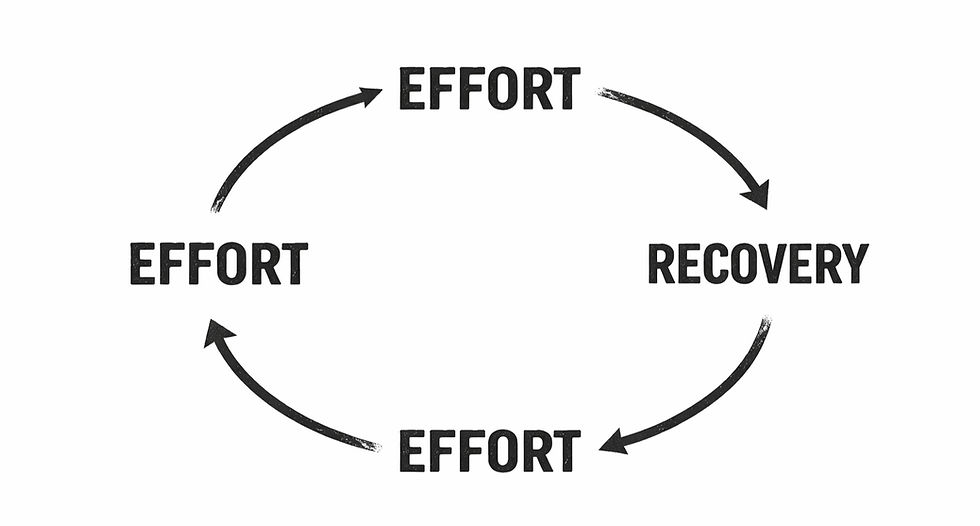How Mindfulness Changes Your Brain
- Lauren Lee
- May 30, 2025
- 3 min read
Updated: Jun 13, 2025
Welcome to the newest blog post of Brain Behind Behavior! Today we will dive into the neurological changes that occur when regular mindfulness is practiced. Then we will provide practical exercises for individuals to integrate into their daily life to boost mental wellness!
Mindfulness has implications for the medical field by acting as powerful clinical treatments to various psychological disorders. This tool works by improving cognition and focusing on emotional regulation. Thus, interventions of mindfulness have the capacity to increase brain functional reconfiguration efficiency as well as induce neuroplasticity, which is essentially the brain's ability to form and organize synaptic connections in the brain. This all contributes to a boost in the brain's mindful awareness, that is, noticing what is going on around oneself, intentionally paying attention, being fully in the present, and gaining an overall awareness of one's thoughts and feelings as an individual experiences them.
Additionally, mindfulness is deeply interwoven with the idea being non judgemental, tying into mental wellness vernacular. According to the Harvard Stress and Development Lab, "Another key aspect of mindfulness involves acceptance and non-judgement of our present moment experiences. This includes accepting our thoughts and feelings—whether positive or negative—and immersing ourselves in the present moment without evaluating it." Practicing mindfulness can significantly counter feelings of stress and anxiety. From an emotional and scientific standpoint, mindfulness benefits people's' thinking and mood.

Mindfulness-based interventions, as mentioned earlier, prove to be powerful treatments for people struggling with depression. Radiology instructor and neuroscientist Gaëlle Desbordes calls this approach "mindfulness-based meditation" where individuals engage in meditative practices focused on the heartbeat, breathing, and reflection of self-chatter to act as a combattant to self-rumination that clinically depressed patients often experience.
From a neurological standpoint, mindful meditation helps individuals demonstrate stronger self-regulation-a behavioral aspect heavily associated with the anterior cingulate cortex. Furthermore, studies showed that meditators showed increased quantities of gray matter in the hippocampus of the brain, an area related to emotion, memory, and the limbic system. These findings continue to spur new mindfulness techniques aiming to impact brain areas correlated with perception, body awareness, emotional regulation, complex thinking, introspection, and a sense of self. In a Harvard Business Review article written by Christina Congleton, the author writes that "Mindfulness should no longer be considered a “nice-to-have” for executives. It’s a “must-have”: a way to keep our brains healthy, to support self-regulation and effective decision-making capabilities, and to protect ourselves from toxic stress" (2015, Congleton).
5 Simple mindfulness practices to integrate into your day:
(1) Breathing. Focus on the feeling of your breath moving in and out of your body. The Square Breathing technique can be extremely helpful to tuning your brain into an easy, calming breathing pattern. This can help calm you down and quiet your mind.
(2) Body scan. In a comfortable position, bring your attention to each part of your body from your head to your toes. Relax your body, focus, and remember to sense without any judgement.
(3) Take mindful transitions. When your mind is in need of a break, step outside, stretch, or take a short walk. Allowing your mind to rest between moments helps improve mental clarity and maintain a present state of mind throughout the day.
(4) Gratitude. At the end of your day, stop and take a moment to reflect on what you're grateful for. Doing this consistently can enhance wellbeing and positive emotions.
(5) Practice regularly. The secret to creating change is consistency. Practicing mindfulness regularly will allow your mind to build the habit and thus maintain mindfulness daily.
Ultimately, it is important to remember that mindfulness starts with intention. Cultivating awareness in the present and adopting a non judgemental perspective can open up new doors for change, both neuroscientifically, psychologically, and emotionally.





Comments